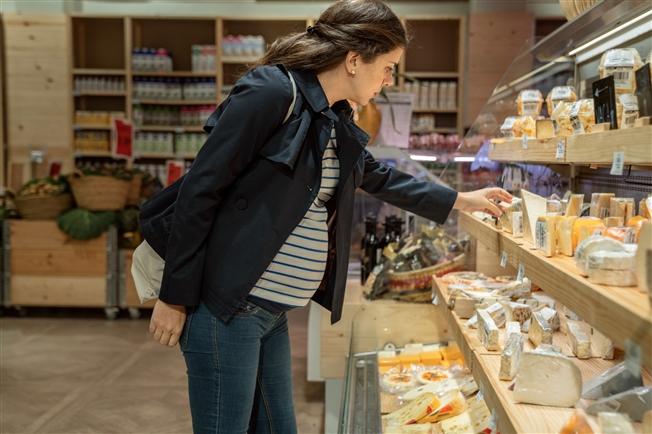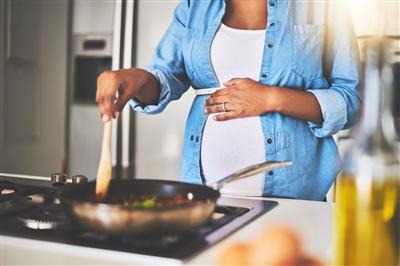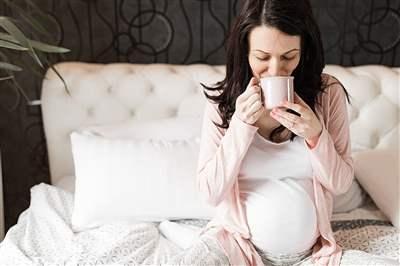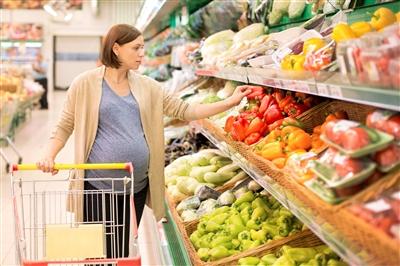Foods to avoid when pregnant

If you’re pregnant or planning on becoming pregnant, you’ve probably thought about all the foods and drinks you’ll have to say goodbye to for the next nine months. What you eat and drink not only has a direct impact on your health, but on your baby’s health too.
But much of the advice you hear about what not to eat when you’re pregnant is somewhat dated, according to Emily Cheston, MD an OB/GYN at Main Line Health. In general, many of the foods that have gotten a bad reputation are unlikely to cause complications. The key is to consume lots of healthy fruits and vegetables that have been washed properly and, if you are considering consuming deli sandwiches, eat high-quality meats and cheeses that are prepared in hygienic conditions. Dr. Cheston tells her patients that if they’re wary about eating something when they’re not pregnant, it probably shouldn’t be eaten while they’re pregnant.
Here’s everything you should know about what foods to avoid when pregnant:
What foods should you avoid?
When navigating what’s safe to eat during pregnancy, the main goal is to avoid foods that might contain bacteria such as listeria or E.coli.
In general, deli meats and cheeses do not need to be avoided during pregnancy as long as you’re getting them from a deli that’s hygienic when handling food. The American College of Obstetrics and Gynecology recommends heating any deli meats to an internal temperature of 160 degrees to avoid the risk of listeria as the incidence of listeria infections is 13 times higher in pregnant vs non-pregnant women (though still rare at 0.2 to 5 casese per 100,000) and can cause fatal infections in the fetus. Undercooked or raw meat and cured meats can also be problematic as they could contain toxoplasma, a parasite that lives in raw or uncooked meats. When ingested, the parasite can cause toxoplasmosis which can lead to severe neurological issues in the newborn.

What drinks should you avoid?

Skip the alcohol, says Dr. Cheston, and try to avoid diet sodas.
When it comes to caffeine, the research has been mixed. Dr. Cheston says she doesn’t tell her patients to avoid caffeinated beverages like coffee altogether, but she does recommend cutting back on caffeine and consuming it in moderation (1-2 cups per day).
If and when you do have caffeine, stay hydrated. “I tell patients you have to be mindful of consuming enough water to keep up with your caffeine. You’re going to be more prone to chronic dehydration in pregnancy and caffeine will worsen your dehydration,” Dr. Cheston says. If pregnant women drink too much caffeine and become dehydrated, their hearts can race and they might feel tired or lightheaded.
You are not eating for two

Maternal obesity is linked to more birth complications and can have long-term effects on the baby’s health. Dr. Cheston advises her patients to “eat the way they want their children to eat,” and avoid unhealthy food when pregnant.
Exercising and eating healthy are really important, says Dr. Cheston. Stay hydrated, eat plenty of fiber- especially vegetables- and be mindful of snacking. Other than that, try to clean your foods properly and cook them thoroughly. “Pregnancy is a great opportunity to make lifelong improvements in the way you eat, drink and exercise. The concerns we have about food and drink are more of a focus in pregnancy, and there are some more risks when it comes to listeria and toxoplasma. If eating a certain food makes you anxious about risks, I would adjust avoided it for peace of mind,” Dr. Cheston says. Dr. Cheston reminds patients to talk to their OB/GYN in the office if they have specific concerns.
For more information on what not to eat when pregnant or for an appointment with a Main Line Health OB/GYN, call 1.866.CALL.MLH (225.5654).
 Content you want, delivered to your inbox
Content you want, delivered to your inbox
Want to get the latest health and wellness articles delivered right to your inbox?
Subscribe to the Well Ahead Newsletter.
